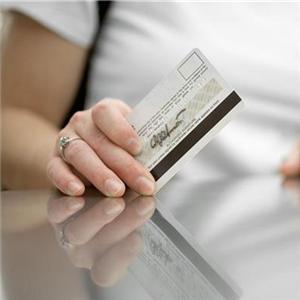 Remember those halcyon days of free flowing cash? That’s when the debit card was born—branded with a major credit card logo, it allowed consumers to pay for purchases without a paper check or relying on extended credit. If the money was in their checking account, the purchase was approved. If funds were insufficient, the card declined. For retailers, accepting debit cards was safer than accepting checks, a form of payment that wouldn’t show up as a “bounce” until long after the customer had left the store with their merchandise.
Remember those halcyon days of free flowing cash? That’s when the debit card was born—branded with a major credit card logo, it allowed consumers to pay for purchases without a paper check or relying on extended credit. If the money was in their checking account, the purchase was approved. If funds were insufficient, the card declined. For retailers, accepting debit cards was safer than accepting checks, a form of payment that wouldn’t show up as a “bounce” until long after the customer had left the store with their merchandise.
But checks weren’t gone (yet). Banks got in the habit of covering bounced checks, making the merchant happy (no lost income) while making money on the side, via overdraft fees charged to the account holder. Costs were covered, plus a little profit for the convenience.
As debit cards became more prevalent, however, consumers began using fewer checks. All that income from overdraft fees was dwindling, and banks knew it. Solution? Start allowing overdrafts on plastic, turning debit cards into virtual pre-paid credit cards, omitting the immediate “decline” for insufficient funds.
Given how frequently consumers whip out debit cards out for every possible purchase, a simple $3.50 latte, a run to the dry cleaner, a bag of groceries, and a tank of gas could rack up more than $120 in overdraft fees alone…in under an hour. The unknowing shopper falsely thinks their account has the money (after all, the card kept going through…right?) while the bank has tapped into a quick hit revenue stream that won’t be noticed until after the fact.
One of the most stringent parts of the new federal rules prohibits banks from using consumer irresponsibility as a revenue stream. It’s no surprise that on the heels of those laws taking effect, one of the country’s largest banks is drawing a line in the sand on debit card purchases.
A new policy, announced by Bank of America this morning, will turn debit cards back into…well…debit cards, as opposed to the pre-paid credit card they were coming close to before. If your account has the money, the purchase will go through. Not enough cash? Declined. No more floating overdrafts now that the cash cow fees are off the table.
What’s old is again new.
Consumer reaction has been profoundly positive, having felt the sting of fees when lulled into thinking they still had cash in the bank—an extremely strong sentiment if the offending bank was the recipient of TARP money (“We gave them money once, but they keep taking more,” in the words of one woman interviewed by the Today Show). Of course, customers have the option of signing up for opt-in overdraft protection, with fees and limitations they can’t argue about later.
For business owners, I think this is the best news we’ve heard in a long time. Assuming the rest of the banking community follows suit (extremely likely), debit card transactions will no longer hold an element of risk. If the funds are there, they’re there. If they’re not, transaction declined. Since no credit is being extended, these transactions equal guaranteed payment, unlike credit card purchases that rely on repaid credit…
…which means solid ground when arguing that higher transaction fees for debit cards is unacceptable during your annual renegotiation with your credit card processor.
Let’s hope merchant services pay attention this time around. It won’t take long for one of them to figure out the best way to attract new accounts is to lower the fees on this no-risk payment method. Whoever does so first will be the darling of brick and mortars everywhere.


Click here to tell me what you think....